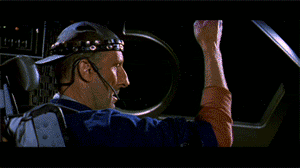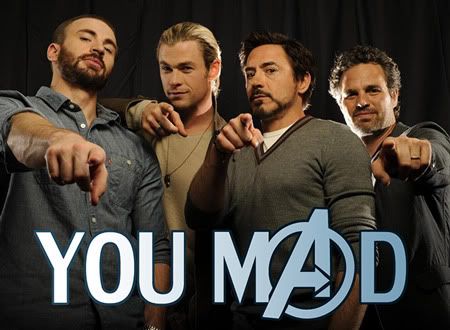There certainly is a focus on the main TF characters, though I know for a lot of people that's not a good thing considering how... well if not hated then at least not liked a lot of the film characterisations are. I know there are a lot of fans who really don't like Prime's "Lets end this, kill 'em all" approach. I tend to veer between agreeing (he's a children's hero rather than a realistic war leader) and disagreeing (it's a logical progression, the events of the first film basically showed trying to lock up Megatron would be a fool's errand and just causes more trouble down the line).
See, what's interesting there is that when talking about the characters, you're only talking about the ones that are special-effects creatures. Not that I have anything against nonhuman characters, but it does suggest something about the difference in emphasis.
2) The civilians weren't ignored. The heroes' first priority, as it should be for superheroes, was to protect the innocent and rescue the endangered. Even in the middle of this huge apocalyptic battle, they were taking the time to free people trapped in buses and coordinate evacuations and rescue hostages and so on.
That doesn't translate totally though, by the time the Autobots are able to fight back (thanks to be forced off planet by the US Government) Chicago has been occupied for long enough there aren't any civilians left.
Which reinforces my point that the filmmakers' attention wasn't on protecting innocent lives at all.
The Avengers's climactic battle wasn't just about warriors killing each other, it was about heroes saving lives. I think that's a critical difference. Rescuing and protecting is, to me, the most important part of what superheroes (or heroes in general) do, and it's a part that I feel is too often downplayed in movies in favor of having the characters get caught up in their own personal battles. (Look at the ending of the first
Fantastic Four movie, for instance. The FF aren't defending anyone except themselves, and they even endanger the whole world by using Johnny's nova blast to protect themselves. Which is a complete inversion of what superhero stories should be about.) While
The Avengers did keep the film's focus and the audience's focus on the characters, it never forgot that the characters'
own focus was on defending other people, not just protecting themselves or killing someone they had a grudge against. (Although I could've done without the casual killing of the Chitauri.)
Don't get me wrong, the end of Avengers works fine. And considering the similarity of setting and that a lot of the same ILM people likely worked on both it's understandable there's a lot of bleed through on design and style up of the action scenes.
What I'm saying is that for me there'd be a big difference between that stuff (the effects and action and design and so forth) being the primary focus in and of itself and just being in the background of a narrative that's primarily focused on people. If it's about people, if there are emotional stakes to engage me, that gives me a reason to
care about it in a way I wouldn't if it were just an orgy of CGI effects. (I used to be able to love special effects for their own sake back when they were more limited, when it was more impressive what people were able to pull off with clever techniques, but in this day and age, not so much.)
In general, I actually think the biggest achievement of the film in general Marvel terms was the rehabilitation of the Hulk. I don't think anyone was expecting the one big name character/actor not coming off the back of a recent, succesful, film to help set them up to very nearly manage to steal the whole film from Downey Jr.
For me, the rehabilitation of Black Widow -- and Scarlett Johansson -- was more impressive. In
Iron Man 2, basically all she did was look great, and the energy level of the film seemed to drop twenty percent every time she actually spoke. Here, she became practically the central character -- the first Avenger we saw, the recruiter of the second, the one who deduced Loki's plan by out-tricking the trickster, the one who ultimately found and enacted the solution that closed the portal -- and Johansson managed to give a more engaging performance than I've seen from her before. I think Natasha was as much a breakout character as Bruce.
And yeah, I said Bruce. How is Hulk the breakout character? He basically had two big funny moments and one Big Damn Hero moment and the rest was just the usual rampaging. It was Bruce Banner who was actually the interesting character, and the one who thereby made the Hulk worth caring about.
And I think that most of what Whedon did to handle the Hulk so effectively came in the Hulk's absence. He did a great job building the Hulk's
reputation in the first half, showing us through other characters' reactions why the Hulk was a big deal. Never more effectively than by building up Natasha as this completely cold, fearless, ultracompetent superspy and then showing her downright
terrified by what this mild-mannered guy standing opposite her had the potential to turn into. What Whedon achieved through character alone was a more impressive special effect than all the CGI and performance capture at their disposal.










 )
)